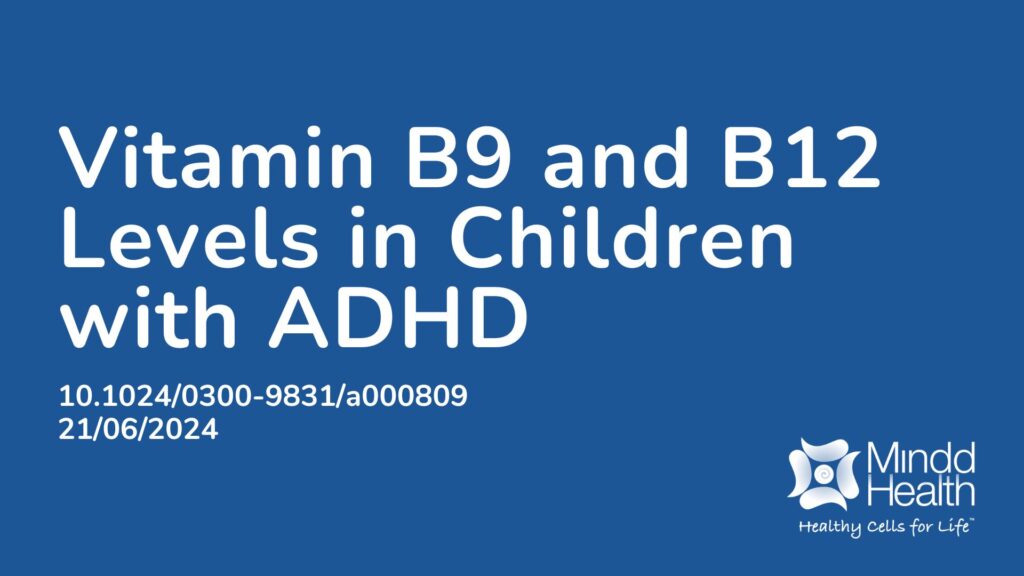Summary:
ADHD is a common childhood disorder marked by inattention, hyperactivity, and impulsivity, affecting about 7-12% of children worldwide. Its causes are complex, involving genetics, brain chemistry, and environment. Diet may influence symptoms, with poor nutrition linked to worse outcomes and nutrients like folate (B9) and vitamin B12 potentially playing a protective role. Folate and B12 are important for brain function and neurotransmitter production. Deficiencies have been linked to behavioral and cognitive problems, including ADHD, but studies have been inconsistent. This review analyzed six studies with 982 children and found that those with ADHD had significantly lower folate and B12 levels than children without ADHD. These results suggest a possible link between these vitamin deficiencies and ADHD, highlighting the need for further research on supplementation and treatment.
Abstract:
Background: Attention deficit hyperactivity disorder (ADHD) is a common childhood neurodevelopmental disorder that begins before age 12. Given the role of B group vitamins in cell metabolism, synthesis of nucleotides, and neurotransmitters, the present study systematically investigated the plasma levels of vitamins B9 and B12 in children with ADHD. Methods: We searched electronic databases including Web of Science, MEDLINE, EMBASE, Scopus, Iran MEDEX, Cochran database, and SID from conception to June 2023. Full-text case-control or cross-sectional studies were included in this study. Participants in the case group were children with ADHD aged 6–12 years. Review Manager Software (RevMan 5.4) was used for statistical analyses. Standardized mean differences (SMD) with 95% CIs were used to determine the differences between the two groups. Results: Six studies were included in the present meta-analysis. They included 982 children, of whom, 204 were girls and 744 were boys. The mean age of the children was 8.86±2.03 years. The level of vitamin B9 was significantly different between children with and without ADHD [SMD –0.80, 95% CI (–1.55, –0.04)]. Vitamin B12 was significantly lower in children with ADHD [SMD –0.29, 95% CI (–0.42, –0.16)]. However, due to high heterogeneity (I2 = 93%), sensitivity analysis was used, I2 fell to 21%, and significant difference was observed between the two groups [SMD –0.19, 95% CI (–0.34, −0.04)]. Conclusion: The results of this systematic review showed that the level of vitamins B9 and B12 in children with ADHD was significantly lower than that in healthy children.
Article Publication Date: 21/06/2024
DOI: 10.1024/0300-9831/a000809



